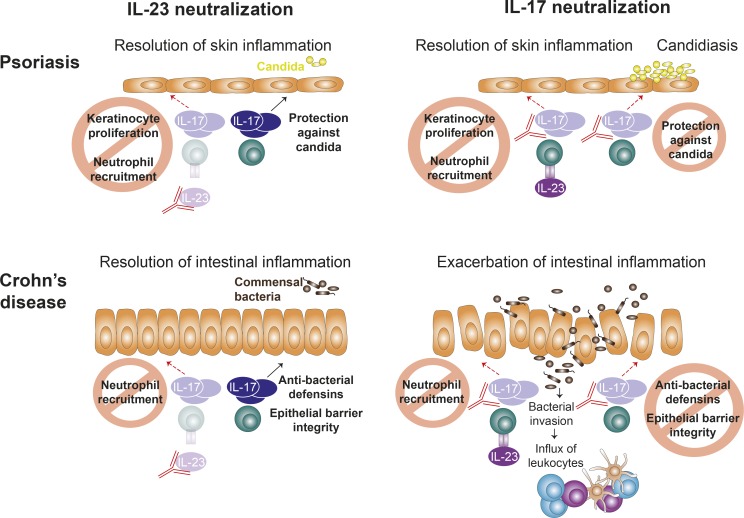Figure 3.
Effects of targeting IL-17 and IL-23 in psoriasis and Crohn’s disease. The neutralization of IL-23 cures skin inflammation in psoriasis by interfering with the IL-23/IL-17 axis. Abrogation of pathogenic IL-23–dependent IL-17 production prevents IL-17–driven keratinocyte proliferation and neutrophil recruitment. IL-23–independent IL-17 production is preserved, which is needed for protection from Candida infections. Direct inhibition of IL-17 also reduces skin inflammation, but compromises host defense against Candida, leading to increased rates of candidiasis. Intestinal inflammation characteristic of Crohn’s disease is improved upon IL-23 neutralization, which inhibits mainly IL-23–dependent IL-17 production and thus interferes with disease-driving mechanisms like neutrophil attraction. IL-23 neutralization spares IL-23–independent IL-17 production important for maintenance of epithelial barrier function and control of the commensal bacteria in the gut. In contrast, direct IL-17 inhibition exacerbates intestinal skin inflammation due to abrogation of the protective functions of IL-17 on epithelial integrity and microbiota control. This leads to invasion of luminal bacteria with a subsequent influx of immune cells and secretion of other pro-inflammatory cytokines to mount an immune response, which perpetuates intestinal inflammation.

